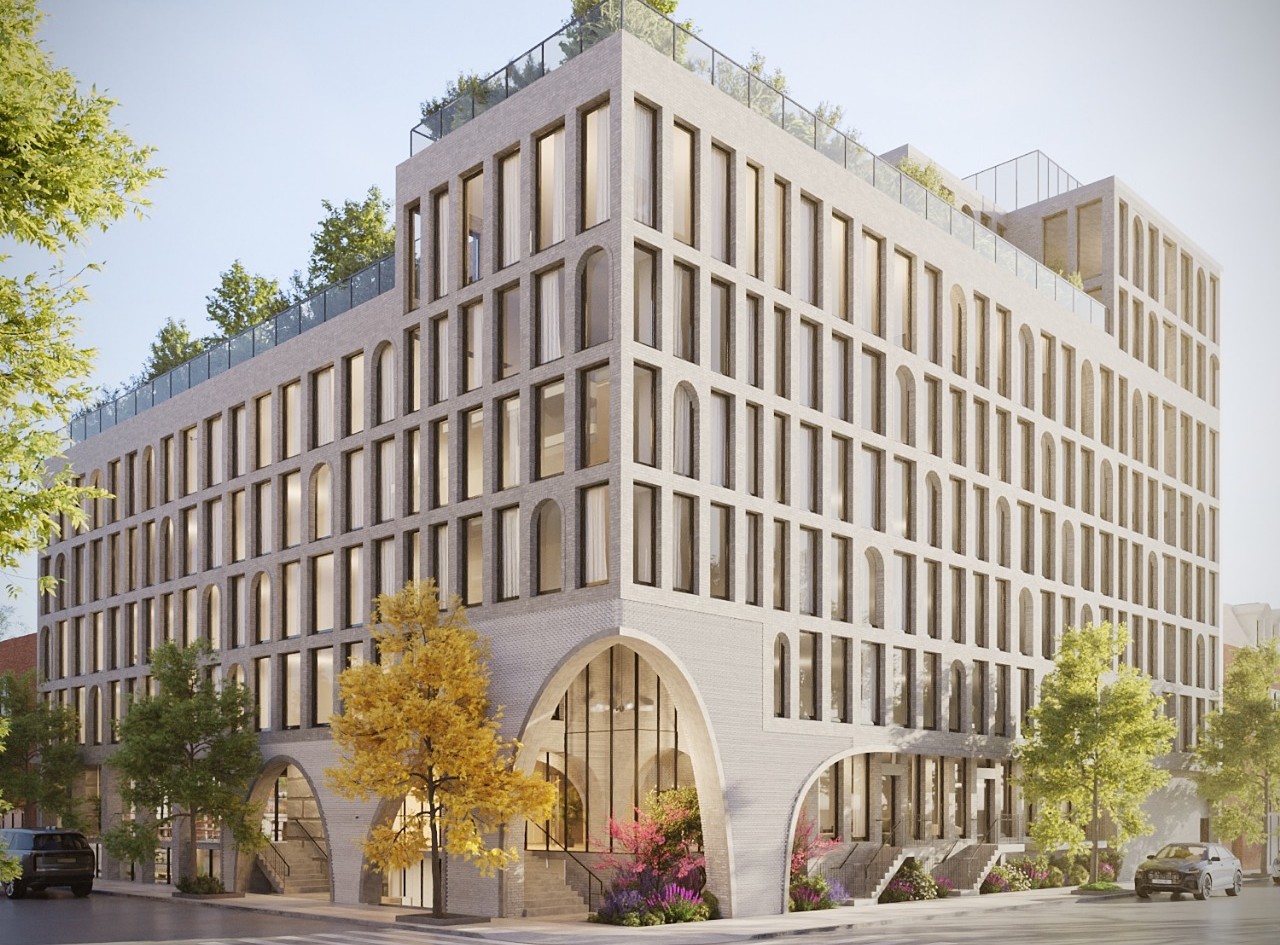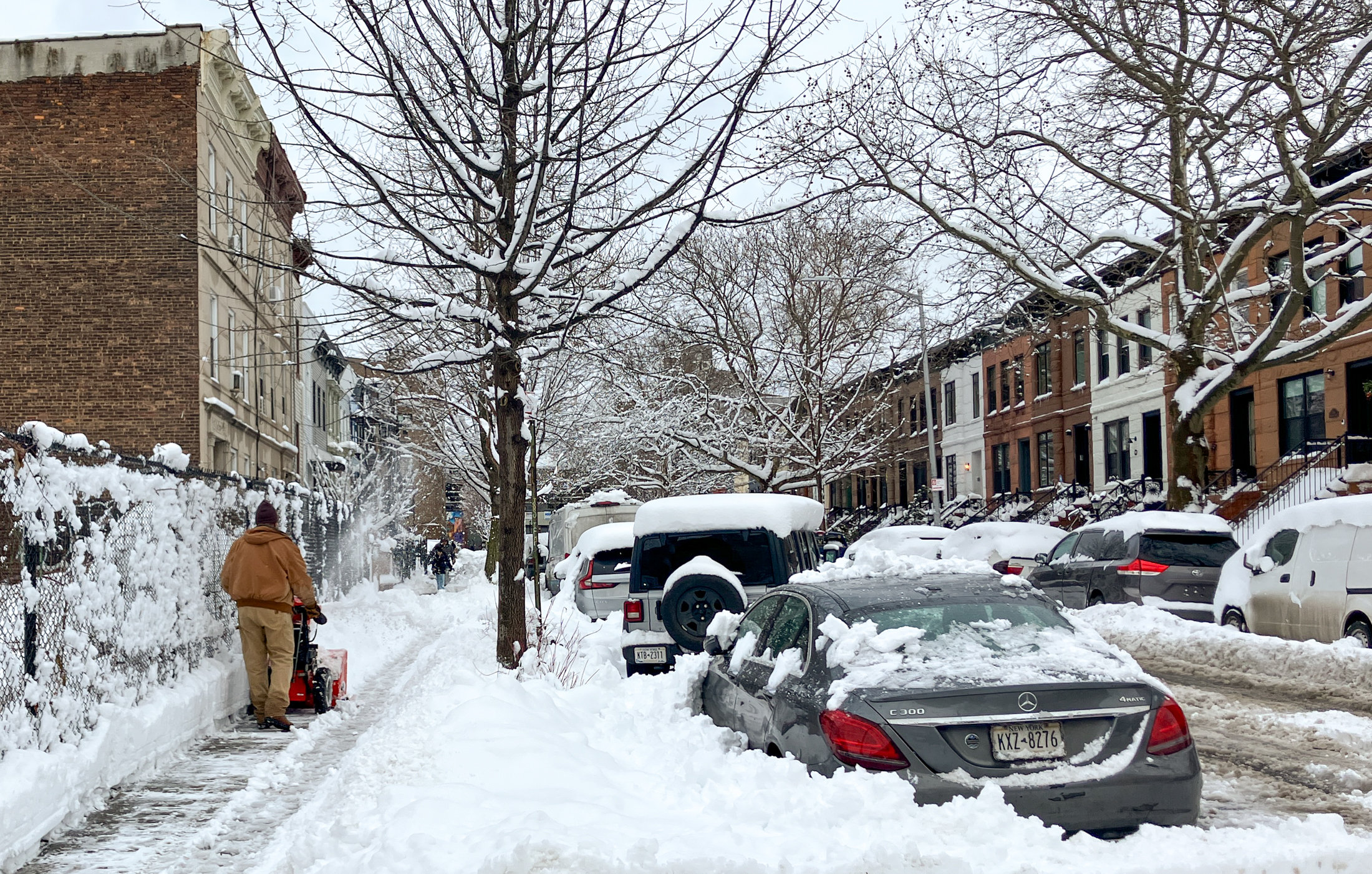Is the Creation of Affordable Housing in Jeopardy?
There have been a number of articles published recently that examine the future of affordable housing in the city, many of which zoom in on the problems developers are having (or are expected to start having) financing projects with affordable components. To summarize: There’s less money for 80-20. The New York State Housing Finance Agency…

 There have been a number of articles published recently that examine the future of affordable housing in the city, many of which zoom in on the problems developers are having (or are expected to start having) financing projects with affordable components. To summarize:
There have been a number of articles published recently that examine the future of affordable housing in the city, many of which zoom in on the problems developers are having (or are expected to start having) financing projects with affordable components. To summarize:
There’s less money for 80-20. The New York State Housing Finance Agency says there will be only $689 million available over the next three years for new 80-20 developments (whereby 80 percent of apartments in a building are market-rate and 20 percent are affordable), according to an article in Crain’s. This means that only two or three of the 30 or so developers currently seeking tax-exempt 80-20 financing this year will get the dough they wanted. The Housing Financing Agency has determined that 80-20 doesn’t result in the most affordable housing bang for its tax-exempt bucks and is putting more financing into other programs. Regardless, the 80-20 clamp down is likely to affect projects in Manhattan more than those in Brooklyn and the other boroughs.
Low-Income Housing Tax Credits Are Vanishing. Per the Real Deal: Affordable housing financiers—called syndicators—package…tax credits and sell them to firms that get a return on their investment and a reduction in taxes. Banks that buy the low-income credits also get favorable consideration for investing in underserved communities from regulators under the federal Community Reinvestment Act. But after the subprime crisis left balance sheets uneven, many investment firms have less need to shelter profits from taxes. In response, developers of affordable housing are starting to consider building fewer units or trying to rustle up alternate sources of funding. “The government can put in more money, private capital funds could give more, or we could raise the rents some,” says Martin Dunn, the president of Brooklyn-based affordable housing developer Dunn Development.
The City is Whittling Affordable Housing Projections. Although the Bloomberg administration still believes it will reach its target of creating 92,000 new affordable units by 2013, it is also scaling back the number of affordable units it expects to see created over the next year, according to an article in the Observer. HPD predicts that construction on 7,947 affordable units will take place over the next fiscal year (which begins in July); HPD previously reduced the number of affordable housing construction starts it expected to see happen over the coming fiscal year from 11,587 to 8,568.
Tax-Exempt Housing Funds are Drying Up [Crain’s]
Financing for Affordable Housing Harder to Come By [The Real Deal]
Targets for Affordable Housing Drop, But City Says Its Plan Still On Track [Observer]
Photo by threecee.





CMU: Rent regulation makes less regulated real estate, including all new construction, MORE profitable. How is that going to reduce investment?
The economic effect of rent regulation on pre-existing stock, which is what we have, is to (1) limit windfall profits for landlords who happen to be near improvements made by others (whether artists/hipsters making the neighborhood cool or developers adding upgraded housing stock), (2) to create opportunities for huge profits for landlords who improve regulated properties, (3) to make tenure in the stabilized sector more stable, and thus investments less risky, (4) to make demand, prices and rents in the unregulated sector higher than they would be otherwise, (5) as a result to give developers of new / improved property excess profits (6) thus to induce more investment, and more supply, in the unregulated sector until the excess profits are competed away.
The main beneficiaries are developers/investors in new/improved property, who earn excess returns due to scarcity. Landlords in the rent regulated sectors also clearly benefit, since they get a stability and predictability that is unheard of elsewhere along with the possibility of windfall profits if they improve or otherwise escape the rent regulation regime.
Tenants in regulated apartments enjoy tenure that makes them a source of neighborhood stability much as individual home ownership did in the days before no-money down “liars loans”.
When neighborhoods improve, existing housing stock becomes more valuable, providing windfall returns to people who arrived before the improvements (and regardless of whether they contributed to or inhibited the improvements). With rent regulation, landlords are not fully able to seize these windfalls. Instead, rent regulated tenants with low rents in improving neighborhoods receive some part of the windfall.
Of course, neither tenants nor landlords have any particular moral or pre-legal claim to these windfalls, which are equally likely to be fair, unfair, deserved, economically useless, etc in either case. The people who deserve them are the people who made the neighborhood more desirable — Jane Jacobs, the inventors of modern policing, the MTA, the arts community, Wall St and other job sources, landlords and tenants and shopkeepers and restauranteers who actually improved their properties, celebrities who moved in, etc. Those folks aren’t going to get them in any consistent way with or without rent regulation. Probably the fairest thing to do would be to tax away the windfall capital gains at 100% and redistribute them to productive or deserving members of society.
Tenants and condo/coop/small house retail buyers in the unrent-regulated markets probably pay more due to their inability to bid up rents on regulated apartments, but may pay less due to the increased supply of new construction that rent-regulation induced excess profits create. Or they may pay more (or less) because the stability and economic diversity resulting from our combination of ownership and rent regulation makes neighborhoods more (or less) attractive. Or the effect of rent stabilization may be relatively small in the long term — in most neighborhoods it mainly reduces the number of people caught in market swings such as the one we’ve had the last couple of years while not changing the long run picture that much.
Newcomers will pay for neighborhood improvements regardless of rent regulation. Rent regulation simply changes who they pay the premium to: more will go to developers of new or renovated housing, less to landlords who do not improve their buildings, and more (in the form of under-market rents) to regulated tenants.
The mortgage tax deduction is one subsidy for us property owners. And there are others, all of which are conveniently forgotten when it comes to comparing “rights.”
The thing is that you either feel a level of compassion for people who are less fortunate than you, or you think they deserve what they get, since you worked harder for your position. I’m of the former bent. And many here are not.
I believe I “owe” something to those who make less than me, and while affordable housing/rent control/what have you, may not be the best vehicle, and may be subject to many abuses, but it’s better than nothing.
If all property had the same restrictions, it’d be a level playing field and none of these complaints would be valid. Since we live in a country that is incapable of nation-wide (or even state-wide) policy making, I agree that NYC housing might attract less investment due to rent control since it does not exist across the river. But it’s still better than not having it, or else NYC would become even more of the rich person’s playground than it is.
OK – so all us owners are going to give up our home mortgage interest tax deduction, yes? Because that would be the right thing to do. It’s such Bullshit that some people have parents who can help them make a down payment on a brownstone and then get to write it off on their taxes, when people who are responsible and work hard but rent don’t get anything.
how about zero affordable units. it’s such Bullshit that some people have to be responsible and work hard and others just get lucky and get rewarded for sucking.
no affordable units, no tax breaks, no rent control. it’s ridiculous and it doesn’t work.
The city and state cannot define property rights in such a way as to violate the US constitution’s protection of property rights. That said, the “Kelo” court may not be likely to step in on behalf of property owners. These hundreds and hundreds of regulations can be challenged.
Defining rights is not the same thing as granting them, or revoking them for that matter. The govt. doesn’t grant these rights, it’s there to protect them, in the course of which it defines them. But WE are endowed with these rights.
3:32:
Zach’s rights are protected by law to exactly the same extent as the landlord’s.
Property rights are defined by state law. The NY and US constitutions (which are law, by the way) protect property rights but don’t define them. Even if you put the landlord’s rights in CAPS, they only extend as far as the rent regulations and hundreds of other regulations, limitations and explanations of what it means to OWN residential property in NYC. Period.
“Otherwise, all we are talking about is Zach’s rights vs. his landlord’s rights, both courtesy of the NY legislature, both incorporated into the current market value of their rights, each arbitrary and giving benefits to many people who don’t deserve them and aren’t particularly needy, and each defensible only to the extent they make the city a better place to live.”
Your point?
“What’s the difference between Zach’s privileges and the landlord’s? It isn’t that the landlord “OWNS” and he doesn’t — that’s just a slogan.”
Nope it’s not “just a slogan.” The landlord may have bought the place or inherited it, but still OWNS it. Zach rents. Period.
“2:51: In Econ 101, “value” and “price” are synonyms. Learn to read before you accuse people of bad faith.”
That’s BS. No way they could or do mean the same thing. “Value” and “price” are quite different variables. Nice try.